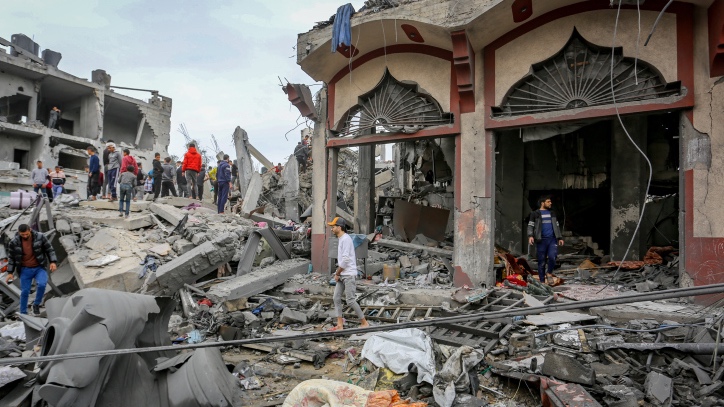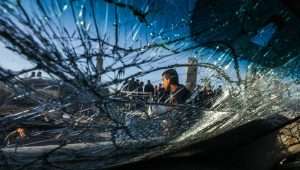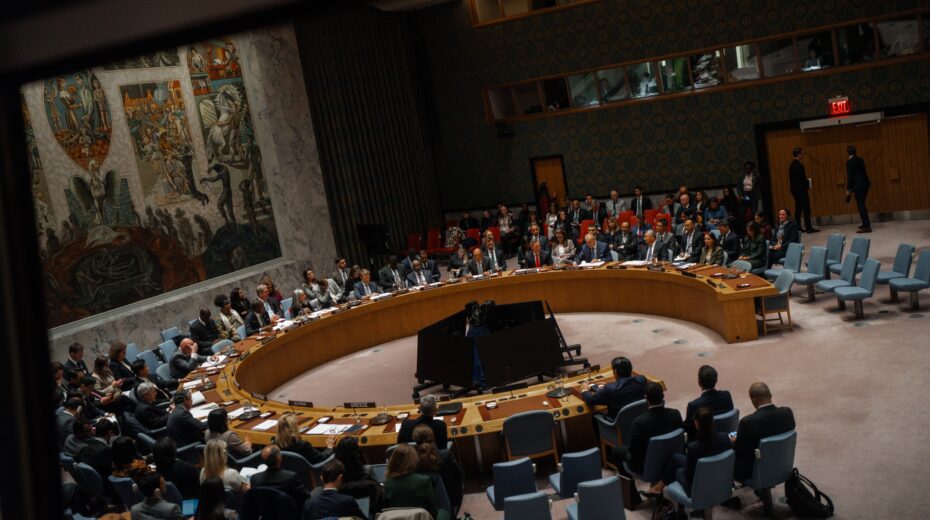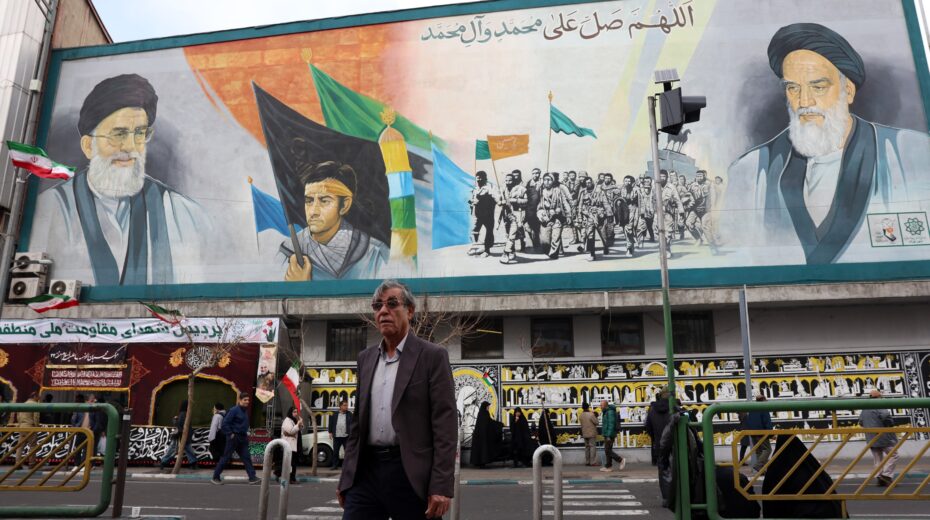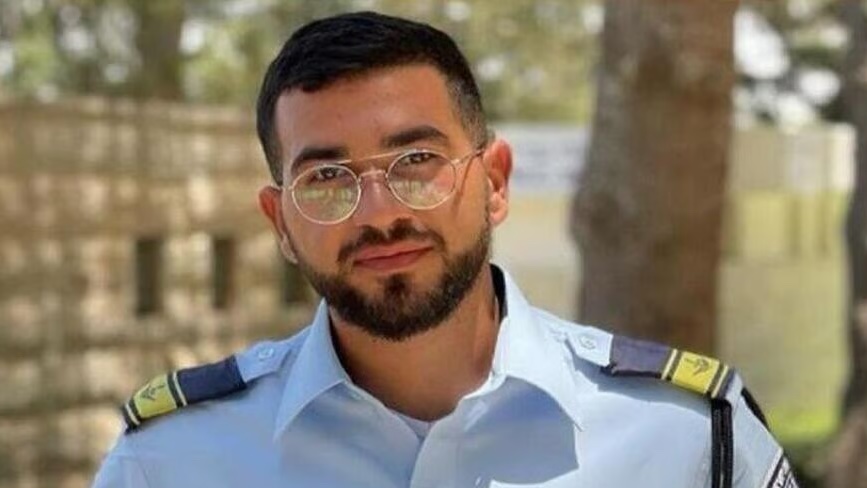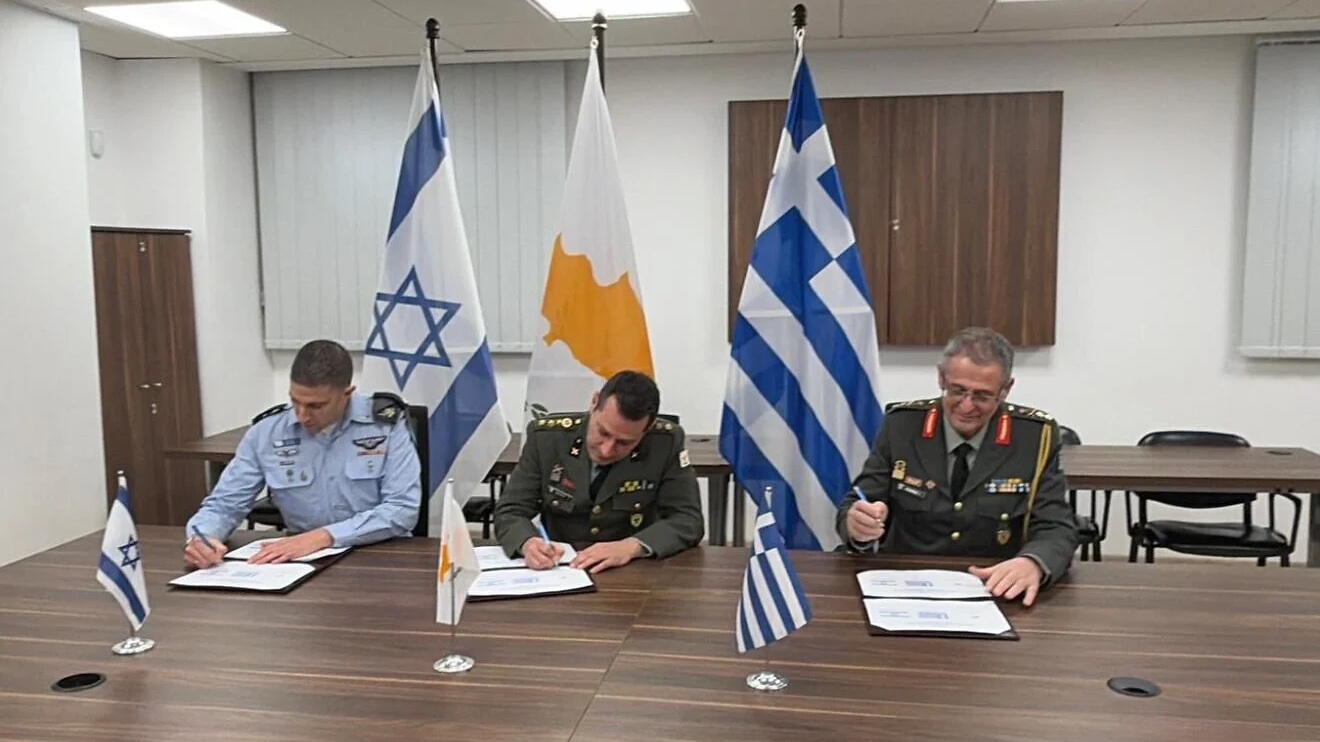As the Israeli military makes progress in the ground war in Gaza, and will continue to do so after the upcoming lull in the fighting, a discussion has begun about what to do with the enclave after full recapture by the IDF.
Most of the ideas floated to date are detached from reality, as we shall see.
Biden’s opinion
US President Joe Biden has his own thoughts about the future of Gaza and the never-ending conflict between Israel and the Palestinian Arabs.
The president took the unusual step of writing an opinion article for The Washington Post in which, in addition to addressing the war in Ukraine, he laid out a vision for the future of Gaza and the resolution of the now-more-than-a-century-old conflict.
“The Palestinians deserve a state,” the president wrote before addressing the resolution of the conflict and the future of Gaza.
According to Biden, the preferred solution to the conflict is still the so-called “Two State Solution.” In his words: “Two peoples living side by side with equal measures of freedom, opportunity and dignity.”
The president then discussed the future of Gaza and, after writing that Gaza can never again be used as a platform for terror, Biden said there should be no “new occupation, siege or blockade.”
“Gaza and the West Bank should be reunited under a single governing structure, ultimately under the revitalized Palestinian Authority,” Biden wrote before explaining that violence by settlers (in Judea and Samaria) should be stopped.
Speaking about the terror that continues to ravage Judea and Samaria, the US president said it is clear that “there should never be more terrorist threats arising from Gaza and the West Bank,” but stopped short of explaining how this should be accomplished.
PA disqualifies itself
So, the president believes that a resuscitated Palestinian Authority should again take over administration of Gaza, but he ignores the fact that the Israeli government and the opposition are completely against this following October 7.
After all, the PA just made the outrageous claim that the Israeli army was responsible for the massacre at the Nova music festival next to Kibbutz Re’im on October 7.
The PA issued a statement that the IDF had applied the so-called “Hannibal Protocol” to the festival. This protocol, abolished in 2016, provided almost complete military freedom to prevent the kidnapping of IDF soldiers.
The Palestinian Authority based this outrageous claim on photographs of the wounds of some victims that allegedly showed that helicopter gunships had been used to kill them.
The truth is that the terrorists had RPGs and truck-mounted machine guns that inflicted the victims’ wounds.
In a statement posted on its social media pages, the PA Foreign Ministry further alleged that Israel had fabricated media materials to justify its offensive against Hamas. The statement disappeared after an angry response from American diplomats, who had received a letter from the PA with the outrageous claims.
The fact that the PA has still not condemned or denounced the Hamas massacre on October 7 makes Biden’s idea of renewed PA rule in Gaza a non-starter for Israel.
In addition, this week the PA-affiliated terror group the Al Aqsa Brigades acknowledged that it had taken part in the atrocities in southern Israel on that Black Shabbat.
Therefore, Biden’s vision for the future of Gaza’s governance will remain a pipe dream.
Other ideas have been put forward about the future governance of Gaza after Israel made clear that it is not interested in a repeat of the situation that existed from 1967 to 2005, when the IDF was responsible for the civilian administration of the coastal enclave.
United Nations?
One of those ideas is a transfer of the administration of Gaza to the United Nations, but even as a temporary measure, this is also a non-starter for Israel.
This is because of the bad experiences Israel had with UN bodies, including UNRWA, which is dedicated to Palestinian refugees and all their descendants, including in Gaza, where the UN body participated in the indoctrination of an entire generation.
UNIFIL in Lebanon, for example, was supposed to keep Hezbollah out of the area south of the Litani River. But the Lebanese terror group now literally sits on the border with Israel and has been able to prepare for its current offensive against the IDF freely. As always, UNIFIL is nowhere to be seen.
Another idea is to ask a group of moderate Muslim countries to take over the interim administration of Gaza. The question, however, is whether any of these states are willing to enter the Gaza quagmire.
All these solutions ignore the fundamental problem with Gaza.
Since 2007, when Hamas violently seized control of Gaza, entire generations have been brainwashed regarding Israel and Jews in general.
We must realize that a significant number of the terrorists who committed the atrocities on October 7 were civilians, including children as young as 10 years of age.
Survivors at the kibbutzim around Gaza said that these children actively participated in the slaughter of Israeli civilians and often showed pleasure in what they were doing.
Denazification in Gaza
The idea of a denazification process for the Palestinian population in Gaza after the overthrow of the Hamas regime is now being floated by Israeli politicians.
However, the process that the Allies imposed on the German population after World War II was primarily aimed at purging government agencies of Nazis. Only then were the German textbooks rewritten and work began on building a liberal democracy in Germany.
In the case of Gaza, hatred of Israel and Jews is almost entirely based on Hamas’s version of Islam, and not on political ideology.
This is the main problem that culminated in the orgy of violence on October 7th.
The war being waged against Israel is a Ribat for Allah, a war intended to guard the borders of an Islamic state, according to Hamas’s version of Islam, but also that of the PA. Jihad is an integral part of this Ribat for Allah.
This now raises the question of how the ‘denazification process’ in Gaza should take place and who should lead it.
Saudi Arabia
When one looks for a recent example of a similar reform process in the Muslim world, Saudi Arabia comes to mind.
There, under the leadership of Crown Prince Mohammed Bin Salman (MBS), major reforms were implemented that put an end to the strong influence of Wahhabism, an extreme form of Islam that dominated life in Saudi Arabia for a long time.
MBS’s reforms not only ensured that, for example, women in Saudi Arabia were given more freedom and in some respects the same rights as men, but also that Saudi Arabia became a leading nation in the Middle East.
Instead of an inward-looking country where non-Muslims were not welcome and which produced terrorists like Osama Bin Laden, Saudi Arabia became a place where some aspects of Western culture became commonplace, such as concerts and sporting events.
Respect for other religions was also an important consequence of MBS’s religious reforms.
The war that Hamas started on October 7 was partly aimed at the normalization process between Saudi Arabia and Israel, insiders say.
That process had entered a decisive phase and went against Iran’s plans for the Middle East.
Saudi Arabia had previously indicated that the Palestinian issue should be included in the normalization process, but made no demands on Israel about what the solution to the conflict should be.
The war that Israel is now waging against Iran’s so-called ‘resistance axis’ reportedly did not change MBS’s attitude toward the normalization process with Israel.
In fact, the fall of Hamas in Gaza fits into his vision of a more modern and liberal Middle East, without the Iran-backed Muslim extremists who constantly cause wars and prevent the development of stable and more tolerant Muslim societies.
It could well be that after the war, Saudi Arabia will be asked to play a leading role in the reconstruction of Gaza and the necessary reforms in society there.
Such a scenario is more realistic than the plans that Biden and others have put forward regarding the need for change in Gaza.


